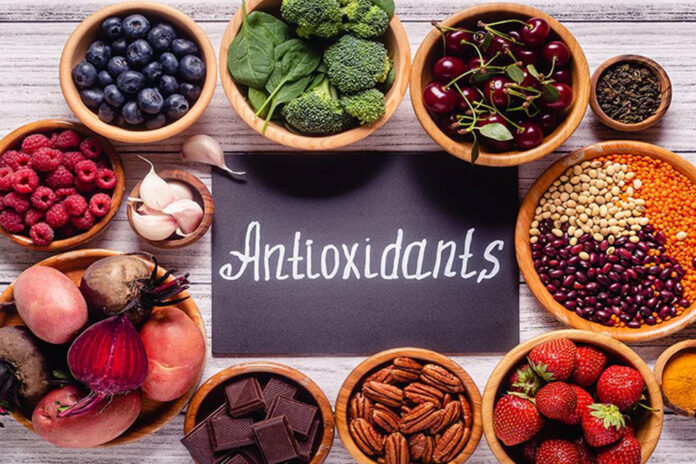
Antioxidants are crucial for overall well-being, including sexual health, but they must be taken in the right amounts. These nutrients help protect the body from damage caused by free radicals, which are unstable molecules produced by environmental factors such as pollution, UV radiation, and smoking. Free radicals can damage healthy cells, contributing to aging and diseases like cancer. Research suggests that antioxidants may help prevent or delay this damage. Antioxidants are naturally found in foods like fruits, vegetables, nuts, and grains, and can also be taken as supplements. However, excessive intake of supplements can be harmful, so it’s best to consult a healthcare provider before starting any new regimen.
Studies published in The Journal of Nutritional Biochemistry have shown that a diet rich in antioxidants can reduce the risk of chronic diseases by neutralizing free radicals. Additionally, antioxidants like vitamin C and E have been linked to improved immune function and protection against cardiovascular disease.
How Antioxidants Improve Male Sexual Health
Recent research highlights the role of antioxidants in male sexual health. A study published in Fertility and Sterility found that oxidative stress, caused by an imbalance between free radicals and antioxidants, can impair sperm function, leading to male infertility. Antioxidants neutralize oxidative stress, protecting sperm cells from damage and improving fertility outcomes.
Vitamin C, one of the most well-known antioxidants, plays a significant role in sperm health. A study conducted by the University of Texas found that taking 500 milligrams of vitamin C daily reduced sperm clumping by 23% within one week. Sperm count and motility (the ability of sperm to move) were also improved. Another study published in Reproductive Biology and Endocrinology reported that vitamin C supplementation boosted sperm quality and decreased DNA fragmentation in sperm cells, a key factor in male infertility.
Vitamin E is another powerful antioxidant. A study in Andrology found that men who took 100 milligrams of vitamin E daily showed improved sperm motility and a reduction in sperm abnormalities. Vitamin E works by protecting the lipid (fat) layers of sperm membranes, making sperm more flexible and capable of moving toward the egg. Research indicates that taking 200-400 milligrams of vitamin E daily is considered safe, although doses above 1,000 milligrams may cause side effects.
Zinc, a trace mineral, is essential for male reproductive health. According to research published in Biological Trace Element Research, zinc plays a critical role in testosterone production, sperm production, and sperm motility. A study involving 37 men with fertility issues found that taking 60 milligrams of zinc per day significantly increased sperm count and testosterone levels. Another study published in The Journal of Reproductive Medicine reported that men with low zinc levels had reduced sperm quality and a higher risk of infertility. The recommended daily intake of zinc for adult men is 11 milligrams, but therapeutic doses may go higher under medical supervision.
Lifestyle Changes to Boost Sexual Health
In addition to taking antioxidants, men should make lifestyle changes that support reproductive health. Reducing alcohol intake is crucial, as excessive alcohol consumption can lower testosterone levels and reduce sperm quality. A study in Alcohol Research & Health found that chronic alcohol consumption decreased sperm production by 50% and led to abnormal sperm morphology (shape). Alcohol also interferes with the absorption of essential vitamins and minerals like zinc, further affecting sexual health.
Smoking is another major factor. Cigarette smoke introduces thousands of harmful chemicals into the body, many of which generate free radicals. A study published in Human Reproduction found that men who smoked had a 23% lower sperm concentration and a 13% reduction in sperm motility compared to non-smokers. Quitting smoking can significantly improve sperm quality and overall reproductive health.
While antioxidants such as vitamin C, vitamin E, and zinc can help improve sexual health, it is essential to take them in the right doses. Excessive supplementation can lead to harmful side effects, including digestive problems and toxicity. Consulting a doctor before starting any supplement is always advised. With the right balance, antioxidants can protect against oxidative stress, improve sperm function, and promote overall health.











